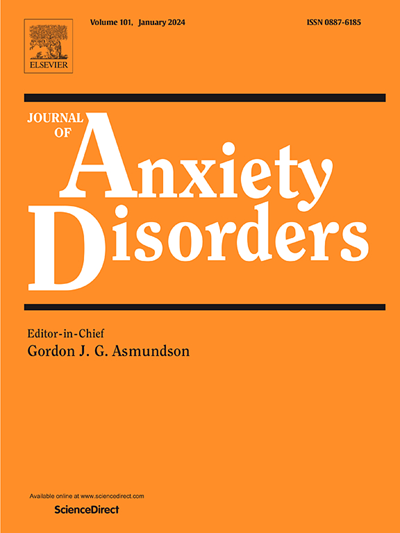Understanding climate anxiety and potential impacts on pro-environment behaviours
IF 4.5
2区 医学
Q1 PSYCHIATRY
引用次数: 0
Abstract
Previous studies have identified harmful social, physical, and mental impacts due to climate change. Anxiety due to climate change or “climate anxiety” may be an adaptive or reasonable response to a real threat; however, it may also be associated with considerable functional impairment of associated behaviours. In this study, we examined the relationship between climate anxiety and pro-environment behaviours, via an online discrete choice experiment, with 374 participants recruited from prolific academic and undergraduate university recruitment program. This experiment included our discrete choice measure of pro-environment behaviours and self-report survey items examining climate anxiety, general anxiety, death anxiety, and locus of control. We found that a moderate level of climate anxiety may be optimal for making pro-environmental choices, with this group having significantly more eco-friendly choices than participants in the low or high climate anxiety groups. We also examined the relationships between climate anxiety and three other psychological concepts, locus of control, general anxiety, and death anxiety, and found that these 3 factors were positively related to climate anxiety. These findings may indicate that some additional negative mental health outcomes are associated with high levels of climate anxiety. This study provides evidence for the use of discrete choice experiments when examining pro-environment behaviours, which may allow future studies to further examine various other trade-offs or factors such as the cost that participants are willing to “pay” for an eco-friendly option.
了解气候焦虑及其对亲环境行为的潜在影响
以前的研究已经确定了气候变化对社会、身体和精神的有害影响。气候变化引起的焦虑或“气候焦虑”可能是对真实威胁的适应性或合理反应;然而,它也可能与相关行为的相当大的功能损害有关。在这项研究中,我们通过一项在线离散选择实验,研究了气候焦虑和亲环境行为之间的关系,该实验招募了374名来自多产的学术和本科大学招聘计划的参与者。本实验包括我们对亲环境行为的离散选择测量和自我报告调查项目,研究气候焦虑、一般焦虑、死亡焦虑和控制点。我们发现,适度的气候焦虑水平可能是做出亲环境选择的最佳选择,这一群体比低或高气候焦虑组的参与者有更多的环保选择。我们还研究了气候焦虑与其他三个心理概念——控制点、一般焦虑和死亡焦虑之间的关系,发现这三个因素与气候焦虑呈正相关。这些发现可能表明,一些额外的负面心理健康结果与高水平的气候焦虑有关。这项研究为在研究亲环境行为时使用离散选择实验提供了证据,这可能允许未来的研究进一步研究各种其他权衡或因素,如参与者愿意为环保选择“支付”的成本。
本文章由计算机程序翻译,如有差异,请以英文原文为准。
求助全文
约1分钟内获得全文
求助全文
来源期刊

Journal of Anxiety Disorders
Multiple-
CiteScore
16.60
自引率
2.90%
发文量
95
期刊介绍:
The Journal of Anxiety Disorders is an interdisciplinary journal that publishes research papers on all aspects of anxiety disorders for individuals of all age groups, including children, adolescents, adults, and the elderly. Manuscripts that focus on disorders previously classified as anxiety disorders such as obsessive-compulsive disorder and posttraumatic stress disorder, as well as the new category of illness anxiety disorder, are also within the scope of the journal. The research areas of focus include traditional, behavioral, cognitive, and biological assessment; diagnosis and classification; psychosocial and psychopharmacological treatment; genetics; epidemiology; and prevention. The journal welcomes theoretical and review articles that significantly contribute to current knowledge in the field. It is abstracted and indexed in various databases such as Elsevier, BIOBASE, PubMed/Medline, PsycINFO, BIOSIS Citation Index, BRS Data, Current Contents - Social & Behavioral Sciences, Pascal Francis, Scopus, and Google Scholar.
 求助内容:
求助内容: 应助结果提醒方式:
应助结果提醒方式:


